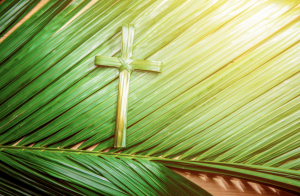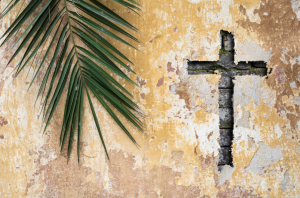Easter Sunday is the most sacred day on the Christian calendar. A celebration of the Resurrection of Jesus Christ after his crucifixion on Good Friday, Easter Sunday marks the culmination of the Lenten season, a 40-day period when Christians across the globe reflect on their faith and make sacrifices to honor the ultimate sacrifices made by their God.

The final week of Lent is known as Holy Week, and the week begins with Palm Sunday, the final Sunday before Easter. According to Catholic Online, Palm Sunday commemorates the triumphant arrival of Jesus Christ in Jerusalem. Upon Christ’s arrival in Jerusalem, the townspeople who revered him showered him with praise, and some may even have thrown palm at his feet in front of him to pay homage.
Palms remain a meaningful symbol for Christians. Upon arriving at church on Palm Sunday, Christians are given palms before proceeding to their seats. These palms are blessed at the beginning of Palm Sunday Mass, and many Christians ultimately fashion their palms into small crosses.

Palms can be kept in a home for the year, though Christians who cannot do that can return them to their church. That’s important to note, as Catholic Online indicates that, because palms are blessed, they cannot simply be discarded as trash. In fact, palms are sometimes collected by churches and incinerated. The resulting ashes are then used to create the ashes that will be used on Ash Wednesday, which marks the beginning of Lent. If returning palms to church is not feasible, CatholicCulture.org notes that it is acceptable to bury the palms.
Palm Sunday marks the beginning of Holy Week. And like many other days on the Christian calendar, Palm Sunday is steeped in meaningful tradition.



